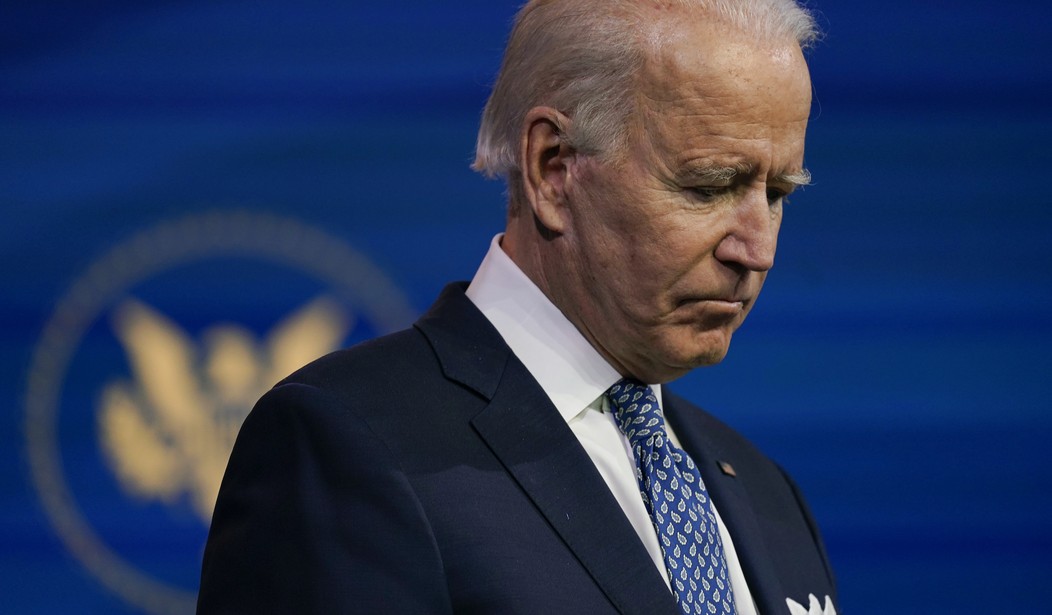Already, newly elected President Joe Biden has undone most of the accomplishments of the Trump presidency. Whether it be on Immigration, Climate, Fiscal policy, or Race/Sexuality, 30 and counting executive orders have drastically altered the trajectory of this nation for the next four years — and beyond.
Something Biden and the Senate Democrats have not enacted yet— though it has been floated and with fervor — is the repeal of Right-to-Work laws. Here is why this poses a major threat to the American worker as well as businesses.
Right-to-Work in the U.S. refers to the legally protected right of employees at a given organization to reject union membership. Even if some individuals unionize at the workplace — the law says that the union cannot force others to join or negotiate on another’s behalf. The given unionized environment is barred from intentionally making the non-union member provide fees that subsidize another’s participation. This provision was imperative when it became commonplace in the 1930s, around the time President Franklin D. Roosevelt ushered in second New-Deal era reforms.
The Wagner Act, also known as the National Labor Relations Act, passed in 1935 with the aim of allowing employees to have to agree to unionization. It also guarded the right of a union shop to hire non-union employees, and as now made clear, that employees cannot be forced to join the union even if they contribute an equivalent amount of what the membership would cost. Similarly, in 1947, the Taft-Hartley Act passed at the disarray of President Harry Truman. Congress overrode his initial veto and amended the prior Wagner Act by allowing the states to ban any union and agency shop operating within their legal jurisdiction. This effectively limited the functionality of disruptive unions and prohibited "sympathy strikes" as well as boycotts for bargaining with an "unrecognized" union.
Recommended
Not every state currently operates under Right-to-Work laws. About half of the country does not anymore — and many that do are located in the South, Southwest, and Western regions: some of which are heavily-industrialized, labor and blue-collar regions.
At a Nevada teamster candidate forum in Dec. 2019 — Biden said “we should change the federal law [so] that there is no right to work allowed anywhere in the country.” Biden favors a “card check” system that would permit a union to take precedent at an office by being able to present signed papers to the employer — pressuring individuals to join the cause (instead of the anonymous secret ballot system).
According to the National Right to Work Legal Defense Foundation, Right-to-Work “affirms the right of every American to work for a living without being compelled to belong to a union. Compulsory unionism in any form— 'union,' 'closed,' or 'agency' shop—is a contradiction of the Right to Work principle and the fundamental human right that the principle represents.”
As noted by the Las Vegas Review-Journal — it is entirely uncertain as to how Biden’s vision to repeal Right-to-Work would corroborate with the landmark decision Janus v. American Federation of State, County, and Municipal Employees (AFSCME). This Supreme Court case in 2018 said that collection of fees by a union, from a non-union member, violates the First Amendment in the public sector.
Right-to-Work is something that has a lot of historical precedence. It is a bulwark against unions from steamrolling employees into submitting to their third-party and utilitarian rule. But this means nothing to President Biden and Vice President Harris who have advocated for the removal of such liability protections. At the National Forum on Wages and Working People — Kamala said: “It has to be about, for example, banning Right to Work laws. That needs to happen.”
In fact, Biden announced his candidacy for president of the United States at the International Brotherhood of Teamsters (IBT) in Pittsburgh, PA, on April 2019. As the Daily Caller notes, “Biden laid out his vision for strengthening worker organization,” and that he, “would sign the pro-union Protecting the Right to organize (PRO) Act...”
As President Biden gears up to fundamentally alter the policies of the country — do not be shocked if he begins to tout his pro-union policies as supposedly pro-worker. But in fact, there could be nothing less pro-worker than unfavorably forcing Americans everywhere to become involved with coalitions they do not care for.
Even though the new administration is ostensibly claiming to be pro-union, Unions that had previously endorsed Biden for president are not too pleased with his actions to cancel the Keystone XL Pipeline. President Donald Trump signed the order into law which would provide thousands of union jobs to hardworking Americans, as well as deliver about "35 million gallons of crude oil a day from Alberta, Canada to Steele City, Nebraska," as cited by The Blaze. In fact, already, TC Energy Corporation formally announced they would have to fire 11,000 workers.
While Biden may virtue-signal about his dedication to the strength of the American worker, the opposite is wholly apparent given his recent actions and transparent rhetoric on Right-to-Work repeal. If unions begin to force non-affiliated employees to subsidize their efforts, the detriment will only be to the individual man, not Big Business. In archetypical top-down politics, repealing Right-to-Work would be a disaster.
Next stop, the USSR. Buckle up America.
Gabe Kaminsky (@Gabe__Kaminsky) is a rising senior at the University of Pittsburgh with bylines in The Washington Times, The Daily Wire, The American Conservative, Washington Examiner, RealClearPolitics, CBN News, Philadelphia Weekly, and several other outlets.

























Join the conversation as a VIP Member